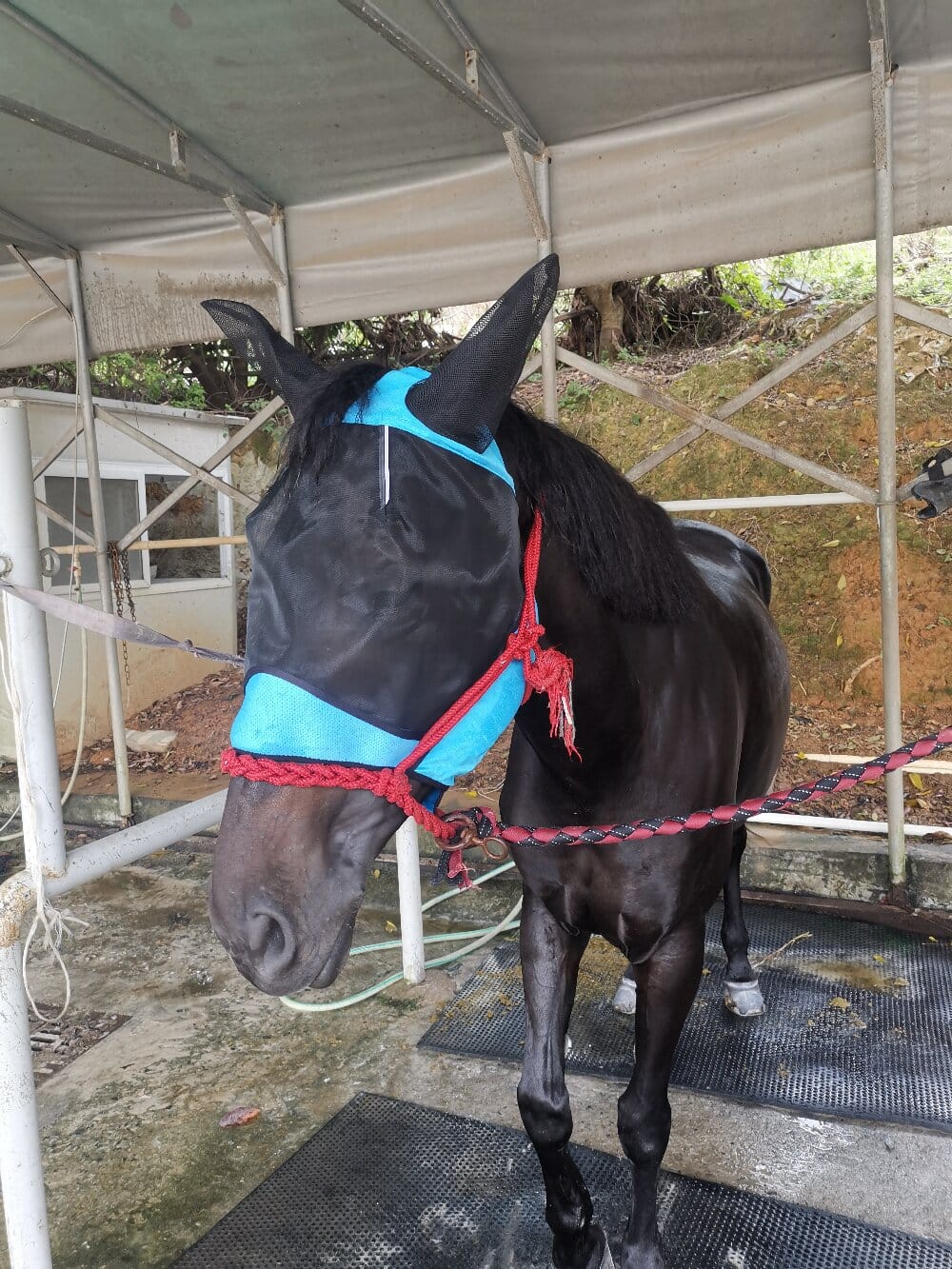A horse fly mask is an essential piece of equine gear designed to protect horses from irritating and potentially harmful insects. These masks serve as a barrier against flies, mosquitoes, and other pests that can cause discomfort, infections, or even diseases. Whether you’re a seasoned equestrian or a casual horse owner, understanding the technical aspects of these masks—such as materials, fit, and UV protection—can help you make an informed choice for your horse’s well-being.
Technical Features of a High-Quality Horse Fly Mask
When selecting a horse fly mask, several technical factors come into play. The material should be breathable yet durable, often made from lightweight mesh that allows airflow while blocking pests. Look for masks with reinforced stitching to withstand wear and tear. Additionally, many modern designs include UV-resistant fabric to protect sensitive areas like the eyes and ears from sun damage. Some masks even feature extended nose covers or ear protection for added defense.
How a Horse Fly Mask Enhances Comfort and Health
Beyond pest control, a well-fitted fly mask can significantly improve a horse’s quality of life. Constant insect harassment can lead to stress, skin irritations, and infections like conjunctivitis. By reducing exposure to flies and other pests, these masks help prevent:
- Eye infections caused by debris or bacteria
- Excessive head shaking or rubbing against objects
- Allergic reactions to insect bites
For horses with light-colored coats or sensitive skin, the added UV protection is another critical benefit.
Choosing the Right Horse Fly Mask: A Buyer’s Guide
Not all horse fly masks are created equal. To ensure optimal performance, consider the following:
- Fit: The mask should snugly cover the eyes, ears, and optionally the nose without restricting movement.
- Material: Opt for soft, breathable fabrics that won’t chafe or overheat the horse.
- Durability: Reinforced seams and adjustable straps extend the mask’s lifespan.
- Visibility: Ensure the mesh doesn’t obstruct the horse’s vision.
Seasonal variations, such as masks with detachable ear covers for summer, can also be a smart investment.
Common Misconceptions About Horse Fly Masks
Some horse owners hesitate to use fly masks, believing they might cause discomfort or limit visibility. However, modern designs are engineered for comfort and clarity. Another myth is that masks are only necessary in summer—flies can be active year-round in warmer climates, making protection a year-round consideration. Proper cleaning and maintenance also prevent issues like bacterial buildup, ensuring the mask remains hygienic.
Conclusion: Why Every Horse Needs a Fly Mask
Investing in a high-quality horse fly mask is a small but impactful way to safeguard your horse’s health and comfort. From preventing painful insect bites to reducing UV exposure, these masks offer multifaceted benefits. By understanding the technical features and selecting the right fit, you can ensure your horse stays protected in any environment. Whether for daily use or seasonal needs, a reliable fly mask is a must-have in any equine care toolkit.

